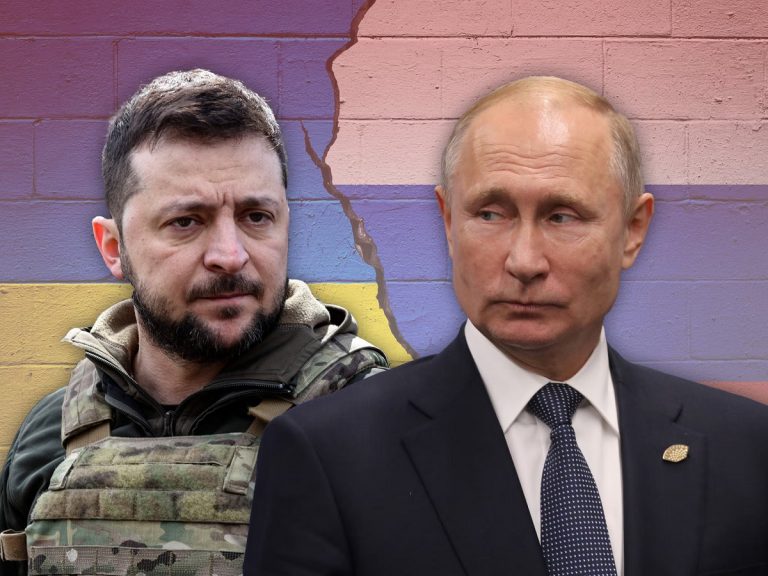
German Chancellor Friedrich Merz stated that Russian President Vladimir Putin’s offer for direct peace talks with Ukraine in Turkey is insufficient, emphasizing that a ceasefire must precede any negotiations. Speaking in Berlin on May 11, 2025, after his first visit to Kyiv, Merz insisted, “First the weapons must go silent, then conversations can begin.”
He noted that Ukraine has agreed to a U.S.-proposed 30-day ceasefire without reservations, but Russia has not committed, with Putin ignoring a European ultimatum for a truce by May 12, 2025. Merz, along with leaders from France, the UK, and Poland, threatened increased sanctions if Russia refuses. French President Emmanuel Macron echoed Merz, stating that talks cannot proceed while civilians are bombed, and Polish Prime Minister Donald Tusk demanded an “univocal” Russian commitment to a ceasefire.
The rejection of Putin’s peace talks offer by German Chancellor Friedrich Merz and other European leaders underscores a deepening divide between Western powers and Russia, with significant implications for the Ukraine conflict and global geopolitics. The insistence on a ceasefire before talks, coupled with threats of increased sanctions, could escalate tensions.
Register for Tekedia Mini-MBA edition 19 (Feb 9 – May 2, 2026).
Register for Tekedia AI in Business Masterclass.
Join Tekedia Capital Syndicate and co-invest in great global startups.
Register for Tekedia AI Lab.
Russia’s refusal to commit to a truce by the May 12, 2025, deadline may lead to intensified Western support for Ukraine, including more military aid, as evidenced by Merz’s pledge of €2 billion in immediate assistance during his Kyiv visit. This could prolong the conflict if Russia responds with further aggression. The West’s precondition of a ceasefire and Russia’s apparent unwillingness to comply suggest a diplomatic impasse. Putin’s offer to hold talks in Turkey, mediated by President Recep Tayyip Erdogan, was dismissed as insufficient, signaling distrust in Russia’s intentions.
Without a clear path to negotiations, the war may continue, exacerbating humanitarian and economic crises. Merz’s stance, backed by France, the UK, and Poland, reflects a unified European front demanding concrete Russian concessions. This alignment strengthens the EU’s resolve but also raises the stakes, as failure to enforce the ceasefire ultimatum could undermine credibility. The coordinated threat of sanctions indicates a willingness to intensify economic pressure, potentially impacting global energy and food markets already strained by the conflict.
Ukraine’s acceptance of a U.S.-proposed 30-day ceasefire bolsters its image as a cooperative partner, contrasting with Russia’s intransigence. However, Kyiv’s reliance on Western support limits its negotiating leverage, as any peace process will hinge on European and U.S. priorities, potentially sidelining Ukrainian demands for full territorial restoration. The divide risks further polarizing international alignments. Turkey’s role as a mediator highlights its strategic balancing act, but its influence may wane if talks collapse. Meanwhile, non-Western powers like China and India, which have maintained neutrality, may face pressure to take sides, affecting global trade and diplomatic relations.
A ceasefire is non-negotiable before talks, reflecting distrust in Putin’s motives and a belief that negotiations under ongoing bombardment are untenable. Leaders like Merz, Macron, and Tusk prioritize halting Russian aggression to protect civilians and create a stable environment for dialogue. This stance is rooted in moral and strategic concerns, including preventing Russia from consolidating territorial gains.
Putin’s offer for direct talks without a guaranteed ceasefire suggests a desire to negotiate from a position of strength, maintaining military pressure on Ukraine. Russia’s rejection of the European ultimatum and lack of commitment to a truce indicate either strategic confidence or an intent to test Western resolve. Russia may view the West’s demands as hypocritical, given NATO’s military support for Ukraine.
This divide is compounded by mutual accusations of bad faith. European leaders see Putin’s offer as a tactic to buy time or weaken Ukraine’s position, while Russian narratives, echoed in some X posts, frame Western preconditions as an excuse to prolong the war and avoid compromise. The absence of a neutral arbiter trusted by both sides further entrenches the stalemate.
The rejection of Putin’s offer signals a high-stakes standoff, with Europe and the U.S. doubling down on pressure tactics and Russia holding firm. The divide risks prolonging the conflict, straining global stability, and testing the West’s ability to enforce its demands without triggering broader escalation.



